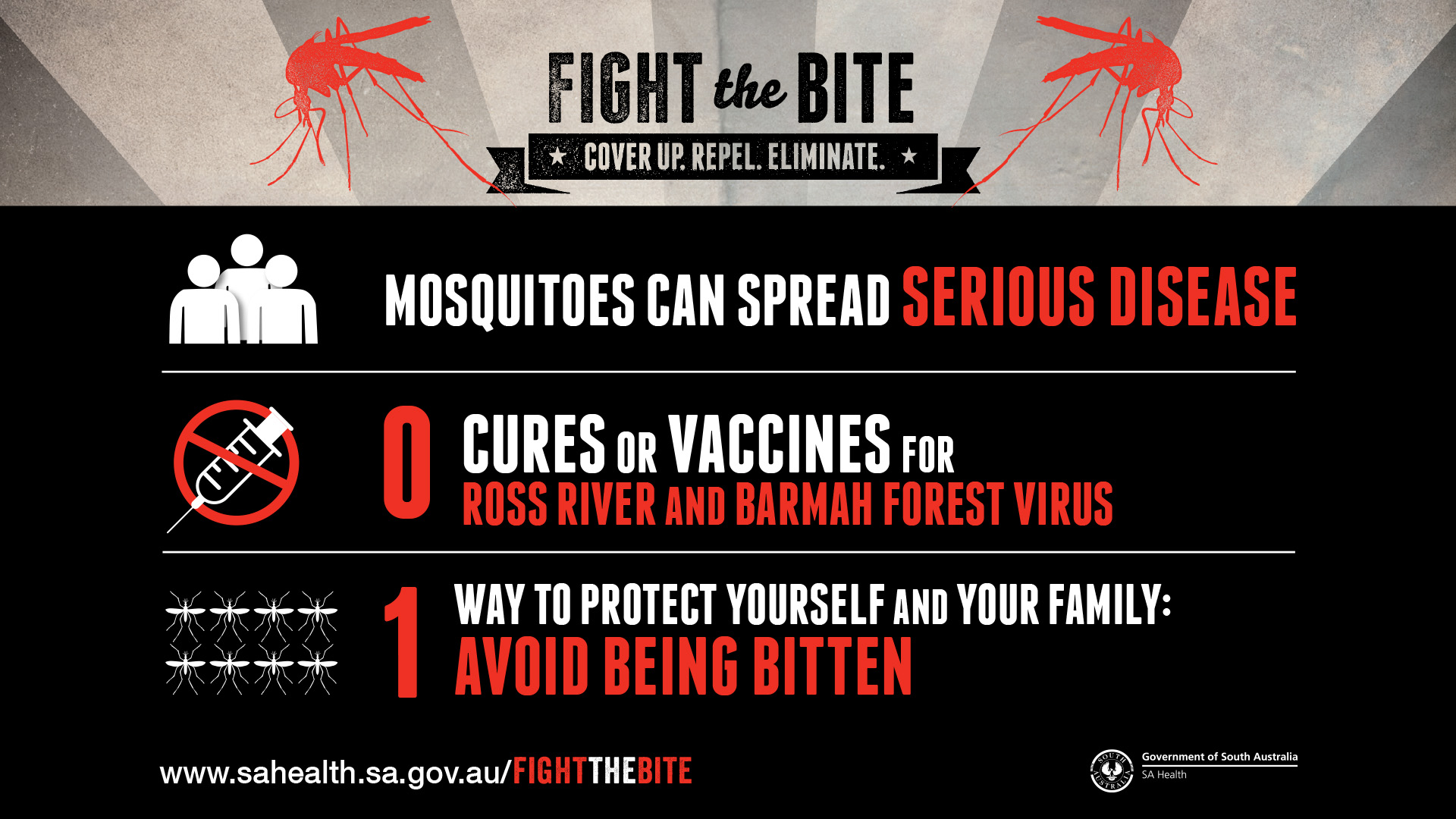Mosquito Control
Mosquitoes are a natural part of our environment, and whilst they can be a nuisance, some mosquitoes are known to be carriers of diseases such as Ross River Virus (RRv), Barmah Forest Virus and Murray Valley and Japanese Encephalitis among others.
The areas surrounding the Murray River are known breeding sites for mosquito larvae and Council has engaged a contractor to undertake mosquito surveillance and control in our high risk areas.

What is the best way to reduce your exposure to mosquitoes?
Cover up!
Wear long, loose fitting, light coloured clothing, covering as much of the body as you can. Mosquitoes can bite through tight clothing such as jeans.
Use an insect repellant!
Insect Repellents containing DEET (diethyl toluamide) may be used to cover areas of exposed skin. Make sure you read the manufacturer's instructions before use. Wash DEET from the skin prior to going to bed and do not use on infants if the concentration exceeds 20%.
Remove them from around your home!
You too can play an important role in controlling mosquito numbers by ensuring that the following actions are taken:
- ensure that there is no water lying around your home or yard
- place sand around the base of pot plants to prevent water pooling in dishes
- dispose of any unnecessary rubbish such as tin cans, jars or tyres
- ensure that fly screens are fitted to all openings of your house
- make certain to screen all openings to tanks, wells and other large water containers with mesh no greater than 1mm
- keep roof gutters in good condition and remove all leaves and debris so that pools do not form
- keep trees trimmed away from guttering to prevent leaves and other debris falling into the gutters
- make sure that any waste water from your property is not pooling
- keep fish ponds and other ornamental ponds stocked with fish
- ensure that your swimming pool is continually dosed with chlorine or salt and that it is covered when not in use
- empty bird baths and pet's drinking water weekly
- keep all open drains and channels free from obstructions, especially weeds, grass and any other debris
- ensure that boats, canoes and dinghies are overturned, covered or have their drain plug removed to prevent from holding water after rain
- drill holes in tyres used for swings and garden surrounds to prevent them holding water
- stock dams on your property with native fish and ensure the banks are clear of plants.
For more information check out SA Health’s Fight the Bite brochure
Ross River Virus - What are the symptoms?
RRv typically presents as severe arthritis with a fever and may also include cold or flu like symptoms, swollen joints, rash, chills, sore muscles, headache, weariness, depression and a feeling of being generally unwell. RRv is not contagious.
Many patients recover from symptoms within three to four weeks, however some may take as long as two years. There is no known cure for RRv.
Consult your health professional for further information.
Most people with Japanese encephalitis virus infection do not experience any illness. There may be mild symptoms such as fever and headache.
A small proportion will have encephalitis (inflammation of the brain). This may begin with symptoms such as:
- tiredness
- fever and headache
- nausea
- vomiting, or diarrhoea.
Confusion, unusual behaviour, sleepiness, seizures, weakness, and abnormal movements may develop. Encephalitis can cause permanent damage to the nervous system or death.

Mosquito Management
The Coorong District Council monitors high risk breeding areas, carry out identification of mosquito species and treat areas where high numbers of mosquito larvae are present.
